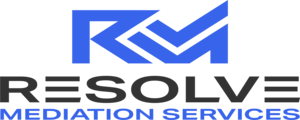
Introduction
Debt collection is a crucial aspect of maintaining financial health for both individuals and businesses. However, the processes and strategies involved in consumer and corporate debt collection differ significantly. Understanding these differences can help you choose the right approach for your specific needs, whether you’re a creditor or a debtor. In this post, we will explore the key distinctions between consumer and corporate debt collection and what they mean for your business.
1. Definition of Consumer and Corporate Debt Collection
- Consumer Debt Collection: This refers to the recovery of debts owed by individuals for personal, family, or household purposes. Common examples include credit card debt, medical bills, and personal loans. Consumer debt collection is regulated by strict laws to protect individuals from aggressive or unfair collection practices.
- Corporate Debt Collection: This involves the recovery of debts owed by businesses or corporations. These debts can arise from unpaid invoices, loans, or contractual obligations. Corporate debt collection typically involves a more complex set of negotiations and may not be as heavily regulated as consumer debt collection.
Keywords: consumer debt collection, corporate debt collection, debt recovery definition
2. Regulatory Framework
The regulatory environment surrounding debt collection varies significantly between consumer and corporate contexts.
- Consumer Debt Collection: In many jurisdictions, consumer debt collection is governed by laws such as the Fair Debt Collection Practices Act (FDCPA) in the United States or similar legislation in other countries, which protects consumers from harassment and unfair practices. These laws set strict guidelines on how collectors can communicate with debtors.
- Corporate Debt Collection: Corporate debt collection is generally less regulated, allowing creditors more leeway in their collection tactics. However, businesses must still adhere to general contractual obligations and commercial law principles.
Keywords: consumer debt laws UAE, corporate debt collection regulations, debt recovery laws
3. Collection Techniques
The techniques used in consumer and corporate debt collection can also differ significantly.
- Consumer Debt Collection Techniques: Typically involves more direct communication methods, such as phone calls, letters, and emails. Debt collectors may also use third-party collection agencies to recover outstanding amounts. Given the protective regulations, collectors must be cautious about the language used and the frequency of contact.
- Corporate Debt Collection Techniques: Often involves negotiation, formal letters, and sometimes legal action. Corporate collectors may focus on maintaining business relationships while recovering debts, leading to more strategic and less confrontational approaches. Negotiation may involve settlement agreements, payment plans, or even asset liquidation.
Keywords: consumer debt collection techniques, corporate debt collection strategies, debt negotiation methods
4. Impact of Reputation
Reputation plays a significant role in both consumer and corporate debt collection, but its implications differ.
- Consumer Debt Collection: Aggressive tactics can lead to reputational damage for companies, resulting in negative consumer perceptions and potential legal consequences. Maintaining a positive image is critical for businesses that rely on consumer trust and loyalty.
- Corporate Debt Collection: While reputation is important, corporations may prioritize recovering debts over maintaining relationships with defaulting companies, especially if significant amounts are involved. However, businesses often need to consider the long-term impact of aggressive collection tactics on their industry relationships.
Keywords: reputation in debt collection, consumer trust debt recovery, corporate debt collection reputation
5. Outcome Expectations
The outcomes expected from consumer versus corporate debt collection processes can vary.
- Consumer Debt Collection Outcomes: Successful recovery often involves setting up manageable payment plans or settlements, with a focus on helping consumers fulfill their obligations without undue hardship. Many agencies aim to preserve the debtor’s credit rating while achieving collection goals.
- Corporate Debt Collection Outcomes: Businesses may pursue legal action to secure full payment, especially if the debt is substantial. Corporate collectors often aim for faster resolutions, as unresolved debts can significantly impact cash flow and operational capabilities.
Keywords: debt collection outcomes UAE, consumer debt recovery success, corporate debt collection results
Conclusion
Understanding the differences between consumer and corporate debt collection is essential for effective debt recovery strategies. While both processes aim to recover outstanding debts, they involve distinct regulatory frameworks, collection techniques, and outcomes. By recognizing these differences, businesses can tailor their debt recovery approaches to achieve better results while maintaining positive relationships with debtors.
Call to Action
Are you facing challenges in recovering consumer or corporate debts? Contact us today to learn how our expert debt collection services can help you navigate the complexities of debt recovery and achieve successful outcomes tailored to your business needs!







